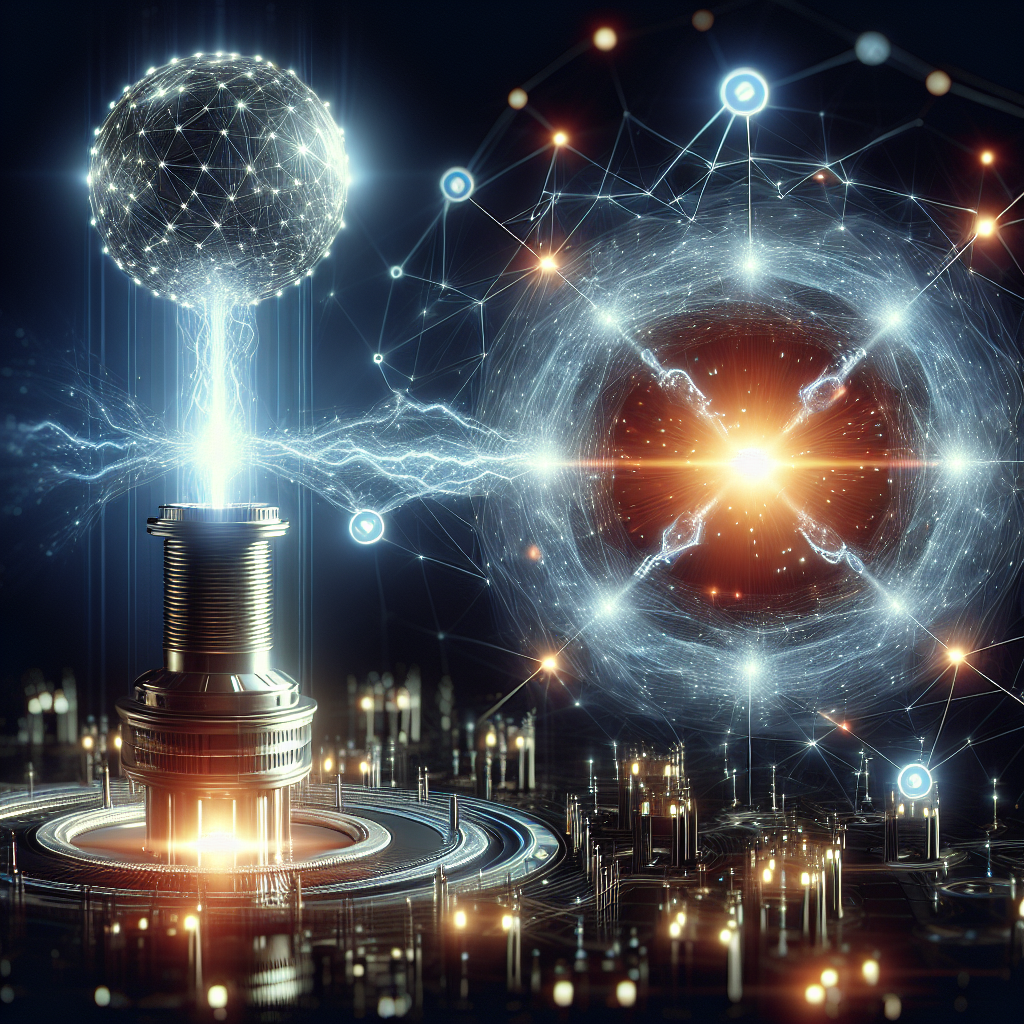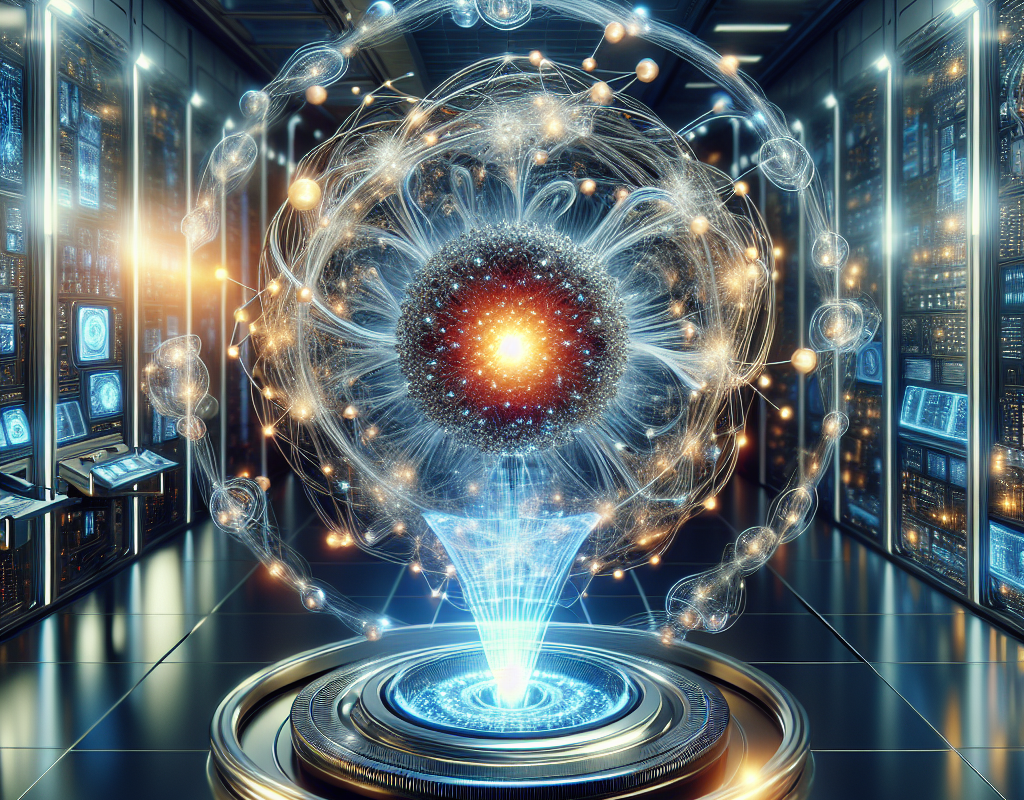The Potential Impact of Unlimited Power on AI Development
The development of artificial intelligence (AI) has been a topic of great interest and debate in recent years. With advancements in technology, AI has become more sophisticated and capable of performing complex tasks. However, one question that has been raised is whether an infinite power source would help in the development of AI.
To understand the potential impact of unlimited power on AI development, it is important to first understand the role of power in AI. Power is essential for any technology to function, and AI is no exception. The more power an AI system has, the more tasks it can perform and the faster it can process information. This is because AI systems require a significant amount of computational power to analyze and learn from vast amounts of data.
Currently, AI systems are limited by the amount of power they have access to. This means that they can only perform a certain number of tasks and process a limited amount of data. However, with an infinite power source, AI systems would have access to unlimited computational power, which could potentially lead to significant advancements in their capabilities.
One potential impact of unlimited power on AI development is the ability to process and analyze data at a much faster rate. With more power, AI systems could process and learn from vast amounts of data in a fraction of the time it currently takes. This could lead to more accurate and efficient decision-making, as well as the ability to handle more complex tasks.
Moreover, an infinite power source could also allow AI systems to continuously learn and improve without any limitations. Currently, AI systems require regular updates and maintenance to improve their performance. With unlimited power, AI systems could continuously analyze and learn from new data, leading to constant improvement and advancement.
Another potential impact of unlimited power on AI development is the ability to create more sophisticated and complex AI systems. With more power, AI systems could be designed with more layers and connections, making them more similar to the human brain. This could potentially lead to AI systems that are more intelligent and capable of performing tasks that were previously thought to be impossible for machines.
However, there are also concerns about the potential consequences of an infinite power source on AI development. One concern is the possibility of AI systems becoming too powerful and surpassing human intelligence. This could lead to ethical and safety concerns, as well as the fear of AI systems taking over human jobs.
Moreover, an infinite power source could also lead to a significant increase in energy consumption. AI systems already require a significant amount of energy to function, and with unlimited power, this consumption could increase exponentially. This could have a negative impact on the environment and contribute to climate change.
In addition, the development of AI systems with unlimited power could also widen the gap between developed and developing countries. Access to an infinite power source would give developed countries a significant advantage in AI development, potentially leaving developing countries behind.
In conclusion, an infinite power source could have a significant impact on the development of AI. It could lead to faster processing and learning, continuous improvement, and the creation of more sophisticated AI systems. However, it is important to consider the potential consequences and address any ethical and safety concerns that may arise. Ultimately, the responsible and ethical use of an infinite power source is crucial in ensuring the positive impact of AI on society.
Exploring the Possibilities of Endless Energy for Artificial Intelligence

Artificial Intelligence (AI) has been a topic of fascination and speculation for decades. From science fiction novels to blockbuster movies, the idea of intelligent machines has captured the imagination of people all over the world. With advancements in technology, AI has become a reality, and its potential is constantly being explored and expanded upon. One of the key factors that could greatly impact the capabilities of AI is the availability of an infinite power source. In this article, we will delve into the possibilities of endless energy for AI and its potential impact on the development of this technology.
To understand the potential impact of an infinite power source on AI, we must first understand the current limitations of this technology. AI systems require a significant amount of energy to function, and this energy is typically provided by traditional power sources such as electricity or batteries. However, these sources have their limitations. Electricity is not always readily available, and batteries have a limited capacity and need to be recharged frequently. This can hinder the performance and capabilities of AI systems, especially in situations where they need to operate for extended periods without interruption.
An infinite power source, on the other hand, would eliminate these limitations and provide a constant and uninterrupted supply of energy. This could greatly enhance the capabilities of AI systems, allowing them to operate at their full potential without any interruptions or downtime. With an infinite power source, AI systems could potentially operate indefinitely, without the need for frequent recharging or refueling.
One of the key areas where an infinite power source could greatly benefit AI is in the field of autonomous vehicles. Currently, the development of self-driving cars is hindered by the limitations of traditional power sources. These vehicles require a significant amount of energy to operate, and their batteries need to be recharged frequently. This can be a major inconvenience for users and can also limit the range and capabilities of these vehicles. With an infinite power source, autonomous vehicles could operate continuously without the need for frequent recharging, making them more efficient and reliable.
Another area where an infinite power source could greatly benefit AI is in the field of robotics. As robots become more advanced and are used in a variety of industries, the need for a constant and reliable power source becomes crucial. An infinite power source could provide the necessary energy for robots to operate without any interruptions, making them more efficient and productive. This could have a significant impact on industries such as manufacturing, where robots are used for tasks that require a high level of precision and consistency.
In addition to enhancing the capabilities of AI systems, an infinite power source could also have a positive impact on the environment. Traditional power sources such as fossil fuels are not only limited but also have a negative impact on the environment. The use of an infinite power source, such as renewable energy, could greatly reduce the carbon footprint of AI systems and contribute to a more sustainable future.
However, there are also potential challenges and concerns that come with an infinite power source for AI. One of the main concerns is the potential for misuse or abuse of this technology. With an unlimited supply of energy, AI systems could potentially become more powerful and could pose a threat if not properly controlled. It is crucial to have strict regulations and ethical guidelines in place to ensure the responsible use of this technology.
In conclusion, an infinite power source has the potential to greatly enhance the capabilities of AI systems and open up new possibilities for this technology. From autonomous vehicles to robotics, an uninterrupted supply of energy could greatly improve the efficiency and productivity of AI systems. However, it is important to carefully consider the potential challenges and ethical implications of this technology to ensure its responsible use. As we continue to explore the possibilities of endless energy for AI, it is crucial to keep in mind the importance of responsible and ethical development of this technology.
The Role of Infinite Power in Advancing AI Capabilities and Limitations
Artificial Intelligence (AI) has been a topic of fascination and speculation for decades. From science fiction novels to blockbuster movies, the idea of machines with human-like intelligence has captured our imagination. However, the reality of AI is much more complex and nuanced. One of the key factors that determine the capabilities and limitations of AI is its power source. In recent years, there has been a lot of discussion about the potential of an infinite power source to advance AI. But would an infinite power source truly help AI reach its full potential?
To answer this question, we must first understand the role of power in AI. AI systems require a significant amount of power to function. This power is used for processing data, running algorithms, and making decisions. The more power an AI system has, the faster and more efficiently it can perform these tasks. This is why the development of more powerful processors and computing systems has been crucial in advancing AI technology.
However, even with the most advanced processors and computing systems, AI still has its limitations. One of the main limitations is the amount of power available. Current AI systems are limited by the amount of power they can consume. This means that they can only process a certain amount of data and make a limited number of decisions before they run out of power. This is where the concept of an infinite power source comes into play.
An infinite power source would provide AI systems with an unlimited supply of energy, allowing them to operate without any restrictions. This would mean that AI systems could process vast amounts of data and make an unlimited number of decisions without the fear of running out of power. This could potentially lead to significant advancements in AI technology, as it would remove one of the main limitations that currently hold it back.
One of the areas where an infinite power source could have a significant impact is in the development of self-learning AI systems. These systems are designed to continuously learn and improve without human intervention. However, they require a significant amount of power to process and analyze data. With an infinite power source, these systems could operate at a much faster pace, allowing them to learn and adapt more quickly. This could lead to the development of AI systems that are more intelligent and capable of solving complex problems.
Another area where an infinite power source could be beneficial is in the development of AI for space exploration. Current space missions are limited by the amount of power that can be generated and stored on board. This restricts the capabilities of AI systems that are used in space exploration. With an infinite power source, these systems could operate at full capacity, allowing for more advanced and efficient space missions. This could lead to significant advancements in our understanding of the universe and our ability to explore it.
However, there are also potential limitations to consider when it comes to an infinite power source and AI. One of the main concerns is the ethical implications of creating AI systems with unlimited power. With such power, these systems could potentially become uncontrollable and pose a threat to humanity. This is a valid concern that must be carefully considered before pursuing the development of an infinite power source for AI.
In conclusion, an infinite power source has the potential to greatly advance the capabilities of AI. It could lead to the development of more intelligent and efficient AI systems, with applications in various fields such as self-learning systems and space exploration. However, it is essential to carefully consider the ethical implications and potential risks before pursuing this technology. Ultimately, the role of an infinite power source in advancing AI will depend on how it is developed and used.

